The main reason for the purchase of an Uninterruptible Power Supply for critical operations has been the dependability of industrial diesel generators and their ability to provide efficient power across several industries. Hospitals, data centers, manufacturing, and construction sites are just some of the places where these generators have been used to ensure that critical systems do not shut down unexpectedly and that the operations are continuous. The following article elaborates on the pros and cons, uses, and considerations of industrial diesel generators and shares the insights that help to see more clearly the continued support for the businesses that cannot afford downtime during the process. An industrial generator might be an excellent resource for a business that requires backup power or is intent on making its operations more resilient and proficient through sound choice.
Introduction to Industrial Diesel Generators
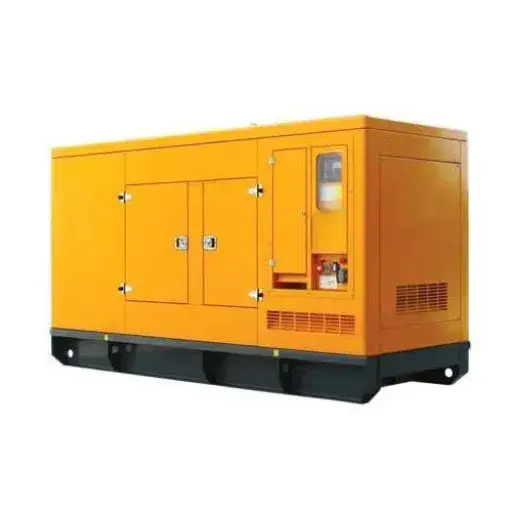
Industrial diesel generators are dependable power sources planned to supply electricity during outages or in areas beyond the reach of the primary electric grid. These generators, which are often called silent power supplies, are very durable and efficient because they run on diesel fuel, making them suitable for industries that demand a consistent, robust energy supply. They are usually found in healthcare, data centers, manufacturing, and construction sectors, where they act as a power backup for critical operations to avoid interruptions due to lack of electricity. The diesel generators’ long service life, affordability, and ability to operate under harsh conditions are among the reasons they are appreciated and considered the best option for companies whose primary concern is keeping their operations running no matter what.
Definition and Overview of Diesel Generators
Diesel generators are mechanical devices that, by using internal combustion and an alternator, convert the chemical energy found in diesel fuel into electrical energy. They are viewed as reliable power sources during blackouts or in areas where the electric grid is unstable. The main components of a diesel generator are the engine, fuel system, control panel, and cooling system, all of which work together to provide continuous, efficient power.
These generators are universally marked for their strength, low fuel consumption, and ability to run continuously even under heavy load. According to the latest industry statistics, technological advancements in diesel generators focus on making them more eco-friendly by reducing emissions, introducing automation, and reducing machine noise. This change has not only made diesel generators less polluting but also more adaptable to modern industries like telecom, medical, and building construction that need them. Moreover, their versatility in meeting various power requirements makes them an important factor in global energy security.
Importance of Reliable Power in Industrial Applications
A reliable power source is essential for industrial processes, as it ensures continuity, safety, and efficiency. During power cuts, the manufacturing, health care, communication, and construction sectors will be most affected, as they are heavily dependent on power for their operations and thus incur losses. Electric failures can lead to production interruptions, loss of non-replaceable materials, generator damage, and unstable patient care in hospitals. For example, power outages in a hospital can create very tense and dangerous situations because one of the most critical areas—the oxygen supply system—is entirely dependent on power reliability. The same is true for data centers and telephone companies, where constant power is essential for uninterrupted digital infrastructure operations. To cope with such scenarios, diesel generators and other standby power solutions serve as a buffer against interruptions, allowing companies to continue operations, fulfill customer requirements, and maintain safety standards. The presence of reliable power is a major plus factor in industrial growth and at the same time, it strengthens the industries’ ability to withstand the shocks of unexpected difficulties.
Types of Diesel Generator Sets: Standby, Prime, and Continuous
Standby, prime, and continuous diesel generator sets are the main types, each designed for specific power needs and usage scenarios.
| Type | Purpose | Usage | Duration | Load |
|---|---|---|---|---|
| Standby | Backup power | During outages | Short-term | Variable |
| Prime | Main power | Regular use | Long-term | Variable |
| Continuous | Constant power | Nonstop operations | Long-term | Steady |
Key Features of Industrial Diesel Generators
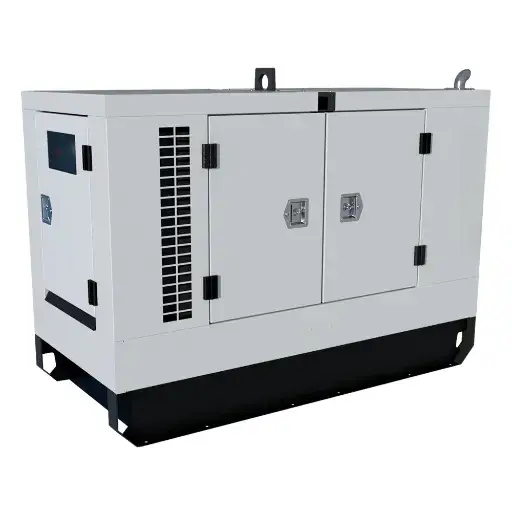
Industrial diesel generators are constantly marketed as the most reliable, efficient, and durable among the different types of generators. They are made to supply constant power output even under harsh conditions and can serve both variable and continuous load needs. The most critical aspects are strong engine designs, good fuel economy, low maintenance needs, and long life. Also, these generators usually come with state-of-the-art control systems that can perform monitoring and safety checks during operation. They are used in a wide variety of areas, from backup power systems to continuous industrial use.
Power Output Range and Fuel Efficiency Metrics
Industrial generators range widely in power output, from around 5 kW for small setups to over 3 MW for demanding industrial applications. These different ranges address a range of needs, whether it’s for a house that requires backup power or a large-scale industrial process.
Fuel efficiency metrics are also vital, as they are significant factors influencing the project’s operating costs and its environmental impact. Fuel consumption of modern generators is often reported as being no more than 0.3 to 0.5 gallons per kW-hour, and this again depends on the type of generator and load conditions. The use of advanced engine technology and the gradual implementation of performance controls optimized for fuel efficiency result in reduced fuel consumption while maintaining consistent, reliable output. The pairing of the power capability’s adaptability and the efficiency inthe usage of fuel makes industrial generators a must-have equipment in any industry.
Unparalleled Reliability and Robust Durability
Industrial generators are designed to provide unparalleled reliability even in the most demanding environments. The heaviness of their construction enables them to endure even the most challenging conditions, such as harsh weather, and to operate continuously under heavy-duty conditions. They have not only been made using the finest engineering and advanced materials but also pose the least risk of breakdown, which means they require very little maintenance over their lifespans. “Why are industrial generators so reliable?” The answer is found in their exceptional design which provides for reinforced enclosures, isolation of vibrations, and systems of control that are state-of-the-art. These components come together to provide a power supply that is never interrupted, and industrial generators are, without a doubt, the critical backbone of construction, healthcare, manufacturing, and emergency backup systems.
Regulatory Compliance and Standards
Industrial generators must comply with strict regulatory standards that guarantee safety, reliability, and a responsible environmental impact. EPA emissions standards are one of the regulations that control the maximum pollutants allowed and also OSHA’s requirements for safe operating and maintenance practices for workers. In addition, complying with local building codes and NFPA standards, such as NFPA 110 for emergency and standby power systems, is necessary to meet the expected safety and performance standards. Actually, these regulations serve to protect operators, the environment, and the systems they power, underscoring the need for proper certification and routine inspections.
Applications of Industrial Diesel Generators
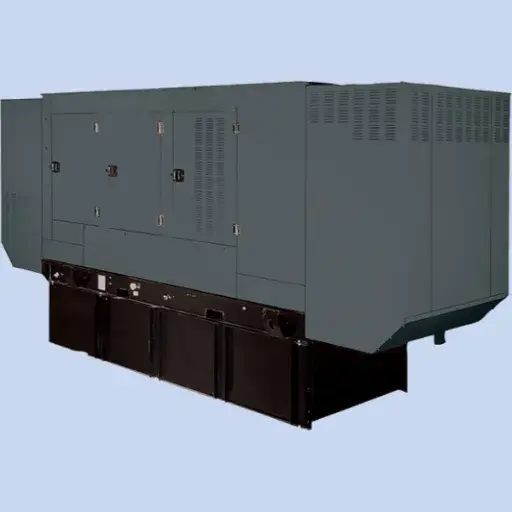
- Emergency Power Supply
Industrial diesel generators are widely used as backup power during power outages, ensuring that critical facilities such as hospitals, data centers, and manufacturing plants remain operational. - Construction Sites
These generators are the primary power source on remote or off-grid construction sites for operating tools and equipment, where a stable grid connection is unavailable. - Mining Operations
Diesel generators in mining operations power heavy equipment, lighting, and other essential facilities in remote or underground areas. - Agriculture and Farming
For various agricultural purposes, industrial diesel generators power irrigation systems, cooling units, and many other machines farmers use to maintain productivity. - Telecommunication Towers
Diesel generators ensure continuous operation of telecom towers even in areas with frequent power cuts or in isolated areas.
Sector-Specific Uses: Construction, Mining, and Events
Diesel generators are indispensable in construction, mining, and large-scale events, as they provide a reliable, efficient power supply in areas that are neither connected to the grid nor have limited access. In addition, the generators keep the loud, heavy, and sometimes hard-to-move machinery, tools, and even workers’ temporary accommodations electrically powered, enabling the projects to be completed on time and without delay. Mines, which are usually governed by strict environmental regulations, get their drilling machines, conveyors and ventilation systems running constantly, thus cooperating with safety and producing more due to their dependency on portable power from generators located in the mines. Similar to the industries mentioned above, concerts, festivals, exhibitions, and other events have depended on these devices; without them, none of these events would be possible. In short, generators keep the events going smoothly and without disruptions by delivering constant power.
Commercial Generators in Business Operations
Commercial generators ensure uninterrupted business operations during power outages or in areas without reliable electricity supply. They provide backup power to essential systems such as lighting, security, refrigeration, and communication networks, helping to prevent downtime and revenue loss. Many industries, such as healthcare, retail, and data centers, rely on generators to maintain operations and protect sensitive equipment. By providing reliable energy solutions, commercial generators enable businesses to meet customer needs and maintain productivity, even in challenging conditions.
Global Power Needs and Industrial Power Solutions
The global power demand continues to increase due to population growth, urbanization, and the expansion of energy-intensive industries. According to recent data, global electricity consumption has surged over the past decade, driven by the proliferation of technology, the rise of electric vehicles, and the electrification of various sectors. Industrial power solutions, such as robust commercial generators and renewable energy systems, play a critical role in meeting these growing energy needs. By integrating innovative technologies and sustainable practices, these solutions can provide reliable, scalable energy, ensuring industries remain operational while advancing toward greener, more efficient power systems. This dual focus on reliability and sustainability is essential to address the evolving energy landscape and maintain global productivity.
Benefits of Using Diesel Generators in Industrial Settings
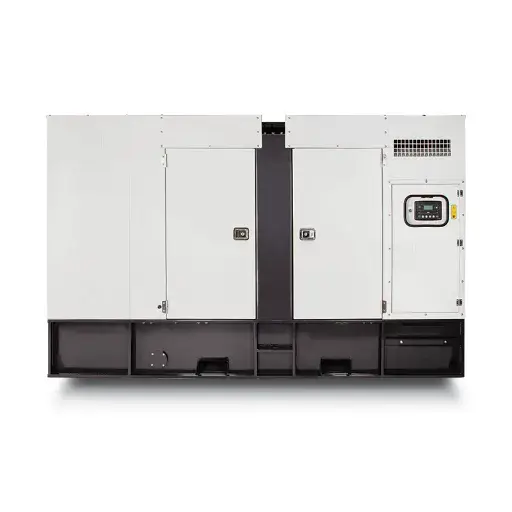
- Reliability and Durability:
Diesel generators, with their robust construction and efficient operation even under heavy loads, provide steady power in the most demanding industrial environments. - Fuel Efficiency:
Diesel engines are the most fuel-efficient ones, thus allowing longer running time of less fuel, and this is an excellent advantage over other types of generators in terms of operational cost reduction. - High Power Output:
Diesel generators can produce large amounts of electricity, making them ideal for large-scale industrial operations that require significant power to keep heavy machinery running. - Low Maintenance Requirements:
Diesel generators have fewer parts that wear and tear, so they are more maintenance-friendly, reducing downtime and providing continuous power. - Adaptability for Remote Locations:
Diesel generators perform well in remote locations without access to the electrical grid, making them indispensable power sources for off-grid industrial activities.
Superior Reliability and Consistent Power Quality
Diesel generators are acclaimed for their power output and stability, even under harsh conditions. Their robust construction reduces power quality fluctuations to almost zero, and this reliability is indispensable for industries that use sensitive equipment and perform critical operations. The consistency of power quality is an extremely important and beneficial factor in applications such as healthcare, manufacturing, and data centers, where even a brief power outage can be highly disruptive.
Besides other factors, reliability remains one of the main reasons companies and organizations choose diesel generators as their primary power source. Emergency power availability solutions are one of the main topics users search for very often, and diesel generators are always the solution that turns up first as the users’ preference due to their reliability and versatility through the years and applications.
Cost-Effectiveness in Specific Scenarios
In circumstances where a reliable long-term power supply is essential, diesel generators can be a very economical option. Their fuel efficiency, combined with the potential to run them for long periods without significant maintenance, results in a substantial reduction in overall operating costs compared with other power solutions. Moreover, in regions with poor or unstable grid access, diesel generators are a reasonable option for reducing downtime and keeping operations running. Their strength and the continuous availability of fuel are additional factors that contribute to their energy efficiency, making them a viable choice for critical sectors such as healthcare, manufacturing, and data storage facilities.
Rapid Deployment Capabilities for Emergency Situations
Due to their ability to supply immediate power during critical situations, diesel generators are ideal for rapid deployment in emergencies. They are constructed in such a way that no time is lost in activation and setup, thereby electricity is restored very quickly in power cuts or natural calamities. Their dependability and mobility still make them the best choice for emergency response groups, hospitals, and other essential services that need a continuous power supply. Furthermore, since diesel fuel is readily available almost everywhere, the generators can be readily deployed and continued to operate even in isolated or affected areas.
Maintenance Requirements for Diesel Generators
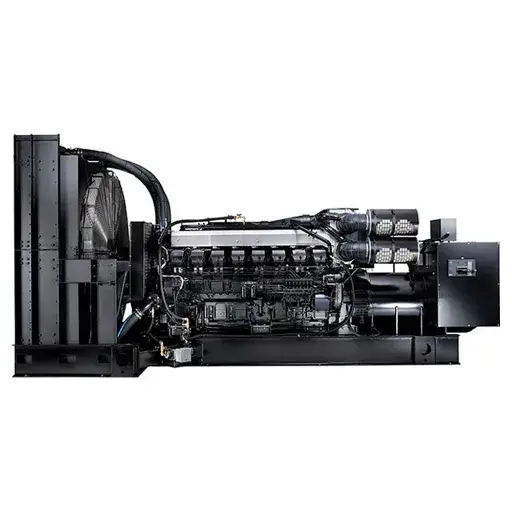
Diesel generators and their efficiency depend heavily on regular maintenance. Various activities, such as oil and filter change, air filter inspection and cleaning, coolant Level checking, and battery and electrical connections testing, are needed for proper maintenance. Moreover, monitoring fuel quality is essential to detect contamination and clogged components before they cause problems. Periodic load bank testing is another method for determining whether the generator can operate at full capacity. Sticking to the manufacturer’s maintenance schedule and addressing issues promptly will help ensure dependable performance.
Regular Inspection and Servicing Guidelines
When it comes to generators, a well-structured routine is always the best approach. However, this can also raise common questions about which practices are the best ones for generator maintenance. One of the most common questions is “How often should a generator be serviced?”
Service Recommendation: Generators should be serviced according to the manufacturer’s recommended schedule, which typically depends on either hours of use or calendar time. Regular inspections should be performed for most generators approximately every 250 operational hours or every 6 months—whichever comes first. Also, oil changes, replacement of air and fuel filters, and inspection of cooling systems should be done at these times. Annual inspection and servicing would be enough for standby generators that are seldom used, but always keep the maintenance manual for the exact guidelines.
Common Issues and Troubleshooting
Generators might face several issues, but most of them can be solved through proper troubleshooting:
Generator Won’t Start
- Initially, check the fuel level and ensure it’s still fresh.
- Then check the battery connectors for corrosion or looseness.
- Lastly, check the oil level if it’s enough and up to the manufacturer’s specifications.
Low Power Output
- Make sure the generator is not overloaded; if it is, reduce the load.
- Examine the air filter for clogs; if it is dirty, replace it.
- Also, check that the fuel supply is clean and free of contaminants.
Overheating
- First, check the cooling system situation for adequate fluid levels.
- Make sure the air intake and exhaust vents are free of obstructions.
- Also, confirm that the generator is indeed running in a ventilated area.
Strange Noises or Vibrations
- Start by looking for and tightening any loose hardware or parts.
- Then, inspect the engine mounts for wear or damage.
- Finally, listen for any abnormalities in engine operation as this could signal internal problems.
Important Note: If the problem persists or is very complex, you should call a professional technician who will perform detailed diagnostics and repairs. Always follow the manufacturer’s troubleshooting instructions for your specific generator model.
Maximizing the Lifespan of Diesel Generators
The diesel generator that I own has an impressive lifespan which I am able to accomplish through regular maintenance such as oil and filter change, checking the fuel system for contaminants, and inspecting the coolant levels. Besides, I also prevent overheating by making sure there is good ventilation during operation and I do not overload the generator by exceeding its rated capacity. Keeping the generator in a clean, dry place and running it regularly are also effective ways to maintain it in good condition. By adhering to the manufacturer’s instructions and promptly addressing issues, I can ensure my generator remains a reliable source of power for many years to come.
Reference Sources
- Global Power Supply – Diesel Generators: Offers insights into top-rated industrial generators from trusted brands like Cummins, Kohler, and CAT.
- Cummins Diesel Generators: Provides detailed information on reliable and technologically advanced diesel generators used in critical operations.
- Generator Source – Industrial Diesel Engine Types & Applications: A comprehensive resource for industrial diesel engines and their applications.
- Industrial Diesel Generator Guide: Ratings, Sizing & Use: Explains the importance of industrial diesel generators in sectors like mining, construction, and data centers.
- Life Cycle Assessment of a Diesel Generator: A research-based thesis discussing the life cycle and critical need for diesel generators in various industries.
Frequently Asked Questions (FAQs)
What industrial diesel generators and where are they applied?
Power generators of the industrial type are strong systems designated to produce electricity for commercial and industrial sectors. They are found in most industrial places, installations, and companies where there is a regular power supply demand, especially when the power needs are critical.
How can I select the appropriate industrial diesel generator for my usage?
The selection of the proper industrial diesel generator starts with knowing the total power that you will be needing, the kva rating that is required for your particular applications, and so forth. Consider whether you will need a standby diesel generator for backup or a prime power generator for continuous use with less processing. In addition, contemplate the available fuel type options such as diesel or natural gas.
What are the main differences between diesel and gas generators?
Diesel generators are normally more robust and durable than natural gas generators; thus, they can handle demanding applications, while the latter ones can be considered as more ecological and less polluting. The choice between the two often depends on the energy requirements and environmental factors of your industrial or commercial applications.
In what ways does power generation differ in industrial and commercial environments?
Power generation for the industrial sector usually entails heavy machinery, continuous operation, and large systems such as industrial diesel generators capable of handling significant loads. On the other hand, commercial sectors might use smaller generators or a combination of diesel and natural gas generators to meet their fluctuating power requirements. Knowing these differences helps identify suitable generator solutions.
What role does compliance with Tier 4 play in the emissions of diesel engines?
Tier 4 compliance means that the emissions from diesel-engine-powered generators must be within the limits set by the Environmental Protection Agency (EPA). The industrial generators that follow the Tier 4 path produce so little smoke that they can be conveniently used in city areas or where the government rules on emissions are very stiff. This requirement is a must for the companies that want to be green and thus have a smaller carbon footprint.
Conclusion
Industrial diesel generators continue to be an essential power solution for businesses and industries that cannot afford downtime. Their reliability, durability, fuel efficiency, and versatility make them the preferred choice across multiple sectors including healthcare, construction, mining, and telecommunications. By understanding the key features, applications, and maintenance requirements outlined in this guide, organizations can make informed decisions to ensure uninterrupted power supply for their critical operations.
